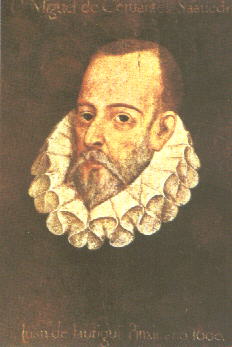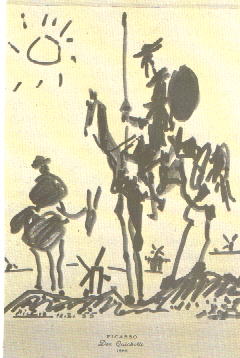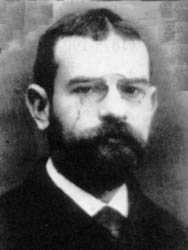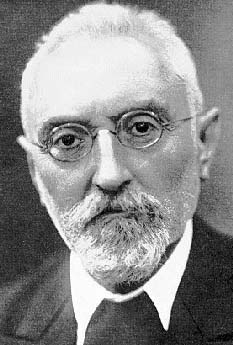SCHEDULE OF ASSIGNED
READINGS
First week:
General Introduction:
"The Story of Spain: Land of Cultures"
Second week:
Don
Juan Manuel (in Flores, 2-11)
Jorge de Montemayor
(in May, 8-45) [Read this article: Abencerraje]
Third week:
Lazarillo (in
Flores, 12-61) [You can read the whole Lazarillo
online]
Cervantes ("The Wedding..."
in May, 124-157) [Read a brief bio]

[Read
this article by Peter
Dunn comparing Cervantes' work with the picaresque novel]
Fourth week:
Cervantes,
Exemplary
Novels
Introduction, 7-18
"The Little Gipsy
Girl," 19-84 (Click here to learn about the gipsies)
"Rinconete and Cortadillo,"
85-120
"The Power of the Blood" (in Flores, 62-89)

Fifth week:
Cervantes,
Exemplary
Novels
"The Glass Graduate,"
121-146
"The Jealous Extremaduran,"
147-180
"The Deceitful Marriage,"
181-194
"The Dogs'Colloquy,"
195-252
[Visit
the site of the Cervantes
Society of America and read all its articles on Cervantes]
[Margaret
Greer looks at the work of Cervantes and Zayas and compares their "framing"]
Sixth week:
First Exam (first
part of the class)
Bécquer
(in May, 46-75)
[Click
here for an article on Bécquer's "feminine writing" or here
to read some of his Rimas]
Key ideas of the Romantic
movement and the Oxford
Dictionary definition. Unfortunately the Spanish Romantic movement
does not have a good presence on the web. Click here for selected
electronic texts in English.
Three essential texts on Romanticism: Schiller
(German), Baudelaire
(French), Shelley
(English).
Seventh week:
Alarcón (in
Flores, 90-103)
Bazán
("Revolver" in Flores, 116-127; "Dream Story" in May 76-85)
Emilia Pardo
Bazán and Leopoldo Alas, "Clarín" are the key figures of
Spanish Naturalism. We don't have much on the web, but learn here about
key ideas of Naturalism.
Eigth week:
 Clarín
(in Flores, 128-145) & Unamuno
Clarín
(in Flores, 128-145) & Unamuno
("The Marquis" in
Flores, 146-175; "A Story of Love" in May, 86-123)
Ninth week:
Cela
(in Flores, 238-257)
Goytisolo
(in Flores, 258-275)
Tenth week:
Masoliver, editor,
"Introduction"
Saladrigas,
Moix, Vázquez Montalbán, Tomeo, Marías, Millás,
Riera (1-63)
Eleventh week:
Merino, Pombo, Tusquets,
Vila-Matas, Monzó, Fernández Cubas, Díez, Puig.
(Masoliver,
64-119)
Twelfth week:
Puértolas,
Murillo, Martínez de Pisón, García Sánchez,
Díaz-Mas,
García
Montalvo, Muñoz Molina (in Masoliver, 120-149)
Thirteenth week:
Pamies, Zarraluki,
Cercas, Millán, Freixas, Cerezales, Atzaga
(In Masoliver,
159-201)
Fourteenth week:
Conclusions
Last Exam [4:30-7:10
PM]
